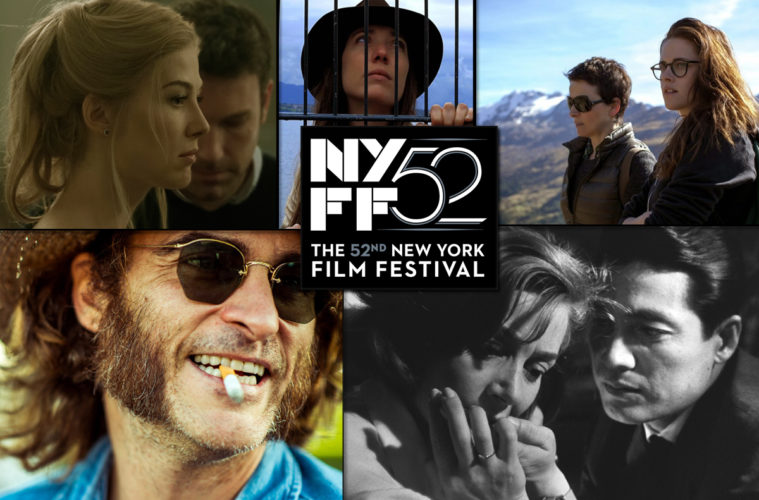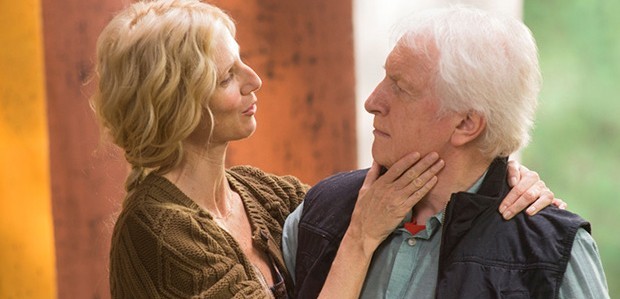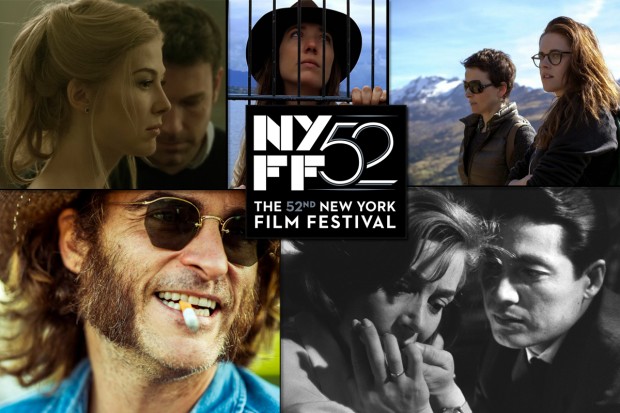
The finest-curated festival in North America — and perhaps the world — kicks off this week with the world premiere of David Fincher‘s latest film. What the 52nd New York Film Festival brings from that point forward is two weeks of cinephile heaven, with additional premieres (one being our most-anticipated film of the year) and a selection of the most-acclaimed festival titles from the last year all stopping by — not to mention restored revivals, speaking engagements, and even more.
So when it comes to narrowing down what’s on our radar, we could just direct one to the full line-up, but we’ve done our best to highlight the 25 specific titles of greatest interest. Check out the rundown below, make sure to stay tuned for our coverage, and let us know what you’re most looking forward to in the comments. One can also get tickets for the below films, if available, on NYFF’s official site.
The 50 Year Argument (Martin Scorsese, David Tedeschi)
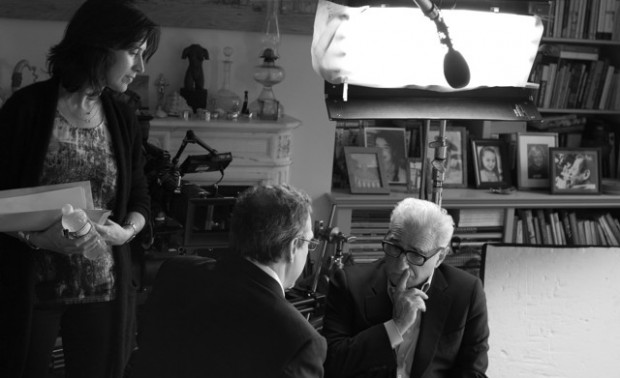
While documentaries such as Stray Dog, Red Army, Seymour: An Introduction, and Tales of the Grim Sleeper round out an excellent-looking non-fiction line-up at this edition of NYFF, one that has captured our attention is the latest work from Martin Scorsese. The film stops by before an HBO bow next week, and chronicles the 50-year history of The New York Review of Books with Scorsese’s frequent documentary editor David Tedeschi making his co-directing debut. – Jordan R.
Beloved Sisters (Dominik Graf)
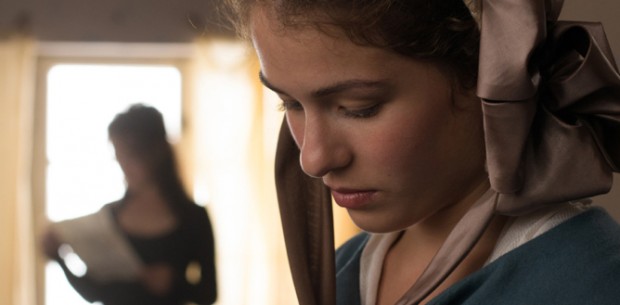
While it might not be on your radar just yet, the latest drama from Dominik Graf will surely earn attention soon. Germany’s submission for Best Foreign Language Film at next year’s Oscars — and a picture set for release next year by Music Box Films — the period romantic drama follows an 18th-century love triangle. Clocking in at nearly three hours makes it one of the longest in the line-up and it looks to be well worth it, as our friend David Ehrlich calls it “sophisticated” and striking “a perfect balance between Resnais and the renaissance.” – Jordan R.
Birdman (Alejandro González Iñárritu)
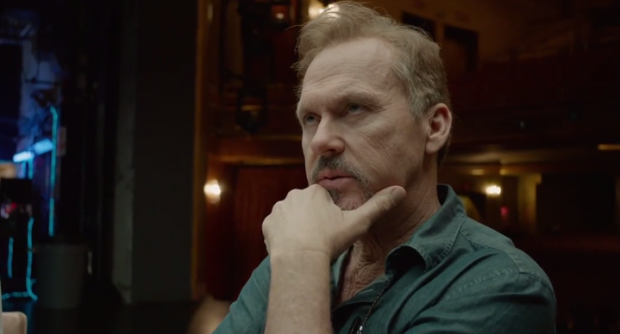
Alejandro González Iñárritu‘s Birdman has all the markings of a great festival title: it represents a departure in style from a controversial director, a good four years after Biutiful; it’s got a juicy cast of actors, all testing themselves in different ways, and it comes wrapped in that crazy cinephile mystique that leaves people speculating for months about a continuous long take that may or may not make up the whole film. Well, Birdman is certainly all that, down to the jazzy, vibrant single-take effect employed by Iñárritu and cinematographer Emmanuel Lubezki to chronicle the early days of a Broadway adaptation of Raymond Carver‘s What We Talk About When We Talk About Love. – Tommaso T. (full review)
Clouds of Sils Maria (Olivier Assayas)
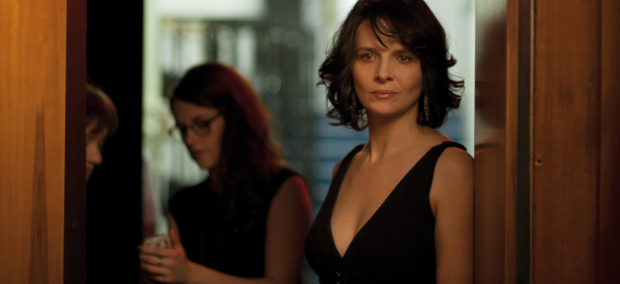
There are so many self-interpretations and meta moments in Clouds of Sils Maria, a puzzler that shows director Olivier Assayas evolving into a director of refinement, that it can seem exhausting. As actress Maria and personal assistant Val rehearse scenes from an upcoming play, it’s clear that the dialogue itself mimics their own relationship. Their sharing of interpretations bluntly address their own feelings, as if the text is almost falling over itself to tell you how to approach everything you need to know. It’s less a Rosetta Stone than reading an undergraduate thesis written about the film as it unfolds. – Peter L. (full review)
Citizenfour (Laura Poitras)
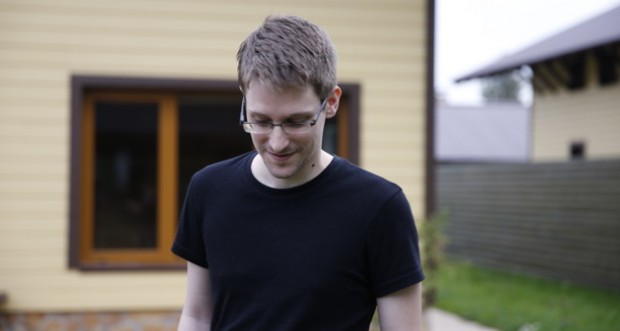
A late addition to the line-up, the timely Citizenfour will be making its debut at NYFF. Set for a release next month, the documentary follows director Laura Poitras, who had intimate access to Edward Snowden and captured their encounters in the days surrounding the major events that would follow. Promises to be a riveting behind-the-scenes look at the life of the critical whistleblower. – Jordan R.
Eden (Mia Hansen-Løve)
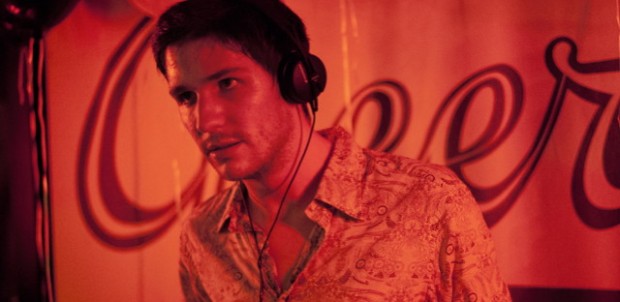
Less the neon-strewn, beat-driven epic its descriptions would’ve suggested and closer to… well, a Mia Hansen-Løve film, Eden has lodged itself in my brain for its quiet — and I do mean “quiet”; even the music isn’t played to high-decibel levels — drift through a weirdly uneventful, decades-long experience that ended, to my surprise, on a discomfiting bit of text-image superimposition that suggests our lives are a bit more finite than we’d like to admit. Inside Llewyn Davis comparisons will undoubtedly spring up, which is fair, but this is closer in spirit to David Chase’s Not Fade Away — a film that’s just as good, to my mind. Those who were fans of that picture have some idea of what’s in store, both for its slightly sudden cutting through time and, through the use of that temporal strategy, evoking the experience of being just outside truly great things. Big impressions are left elsewhere: it doesn’t hurt that even if you, like me, don’t care much for the House scene as a whole, its soundtrack will be stuck in your head for a good long while. – Nick N.
Foxcatcher (Bennett Miller)
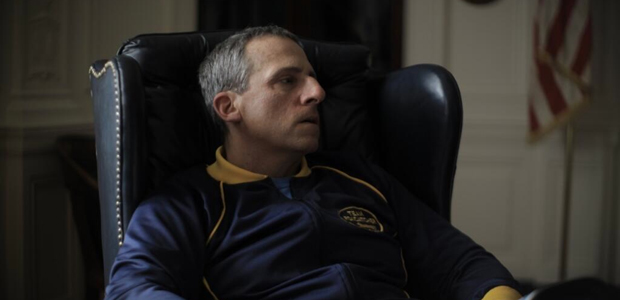
There is an unspoken emptiness that hangs boldly over Foxcatcher, which is sure to be one of the subtly darkest films made by a major Hollywood studio this year. The film’s Pennsylvania ranch initially appears like a gorgeous emblem of American society, sparkling with the country’s ideological symbols of majestic plains, galloping horses, and sizable, but not elegant, mansions. But there also seems to be a totalitarianism hanging over these as well, a kind that makes one second guess the images presented onscreen. The dread that sits over Bennett Miller’s superbly directed, bleakly dystopic view of American life is palatable in every moment without ever feeling overwhelming, simply sitting in the empty spaces that separate the physical bodies. Miller is a director of these spaces — spaces that have been hollowed out, leaving characters to need to sit, look, and think, as we often see with Channing Tatum’s Mark Schultz. Mark desires something, but never has the words to articulate it. – Peter L. (full review)
Gone Girl (David Fincher)
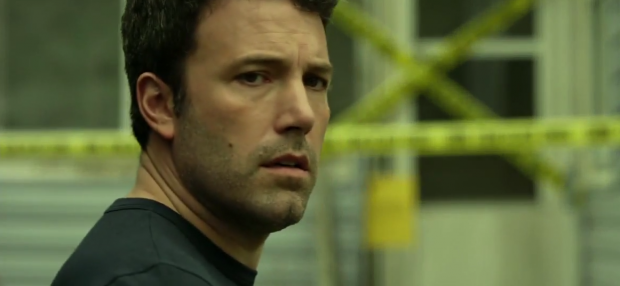
Few (perhaps no) contemporary filmmakers do pulp with the same formal precision as David Fincher, putting such significant emphasis on every possible impact of each new cut, camera angle, and music cue. Gone Girl, pretty much “pulpy” right from the title on down, thus brings with it more credentials than any airport-thriller adaptation should wield. His increasing interest in the importance of perspective — either through court depositions, boxes of files, or a fairy tale told to one’s own child — may find new life in Gillian Flynn’s best-seller. Judging by the Fincher-approved marketing campaign, one gets the impression it’s through a collision of our overbearing media-saturated age and a frightened woman’s diaries, all filtered through crisp Cronenweth cinematography and overwhelming paranoia. – Nick N.
Goodbye to Language 3D (Jean-Luc Godard)
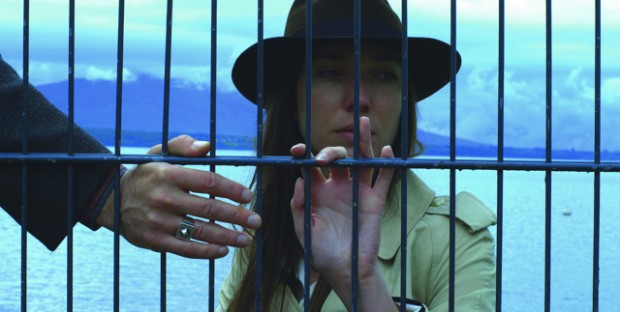
The film is called Adieu au langage. Goodbye to Language. Why language? The goodbye is to cinematic language. The idea of cinema as a translator, as communication. Instead, the images are removed from their language. They are reality. 3D reality. A book; a table; a tree; a phone. They pop — the colors bleed into saturation. The new cinema. Representation disappears. The iPhone cinema. Arnheim and Bazin stood at polar opposites. Godard has found a way to wield them together. Total cinema as pure reality — the wind in the trees, but nothing to limit them as simply the staging of reality. Not a manifestation of reality. Reality as reality. – Peter L. (full review)
Horse Money (Pedro Costa)
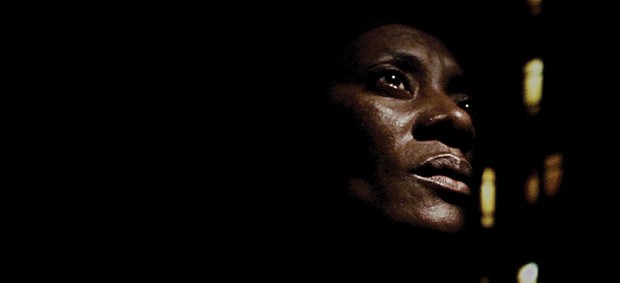
Often, when defining the auteur, one of the first things we go to is the consistency of location — that through a certain booming metropolis, quaint small town, or secluded countryside, we can surmise autobiographical details or even the utopian fantasies of the director at hand. All of this is easy in the case of Pedro Costa, coming off his Fontainhas trilogy, which depicted the struggles of the poor and drug-addicted denizens of Lisbon’s housing projects. – Ethan V. (full review)
Inherent Vice (Paul Thomas Anderson)

After an awfully long time of practicing his spin on Kubrickian austerity, it would seem Paul Thomas Anderson is kicking back just a bit with Inherent Vice. For being compared by the helmer himself to Cheech & Chong, it could be at the top of this list purely for matters of intense curiosity: along with being the first genuine big-screen Pynchon adaptation, early reactions that call it “baffling” while comparing the tone to vintage Zucker brothers films. This is a bit of a weak fall for non-festival titles, sure, but even in the best of theatrical seasons would this be one we can’t stop thinking about. – Nick N.
Iris (Albert Maysles)

He’s approaching his ’90s, but legendary director Albert Maysles is still working in the field of documentary with his latest feature world premiering here at the festival. The project tracks the 94-year-old fashion icon and interior designer Iris Apfel, specifically with regard to her 2006 exhibition at the Met. We’re greatly looking forward to seeing the two interact in that seemingly effortless way only Maysles can evoke. – Jordan R.
Jauja (Lisandro Alonso)
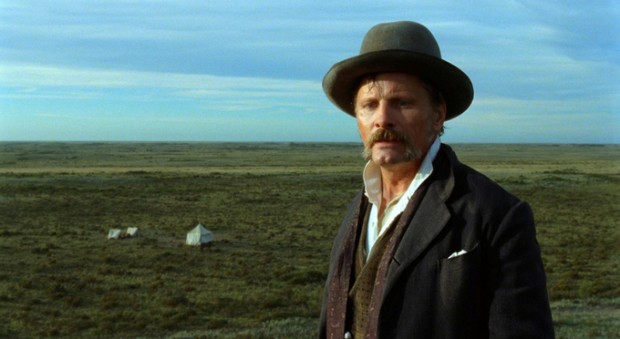
Whenever a director from the outskirts of world or avant-garde cinema decides to work in anything remotely resembling Hollywood, you can count on tremors of fear running down the spines of cinephiles. It is often assumed that these directors will somehow be constrained: stylistic trademarks toned down, three-act narrative structures turned up, and the enthusiastic responses muted. This was certainly my feeling when Argentinean director Lisandro Alonso, whose quasi-documentary works have been a cause célèbre since 2001, would work with Lord of the Rings star Viggo Mortensen. Not only had Alonso never directed a blockbuster star before, but the director had barely touched professional actors in the least, preferring to make films about wood choppers chopping wood (La Libertad) or people just traveling through odd terrain for some mostly irrelevant goal (Los Muertos, Liverpool). Yet Jauja, the strange, beguiling, and excitedly didactic new film is pure Alonso, even as it shows him transforming into something else. – Peter L. (full review)
The Look of Silence (Joshua Oppenheimer)
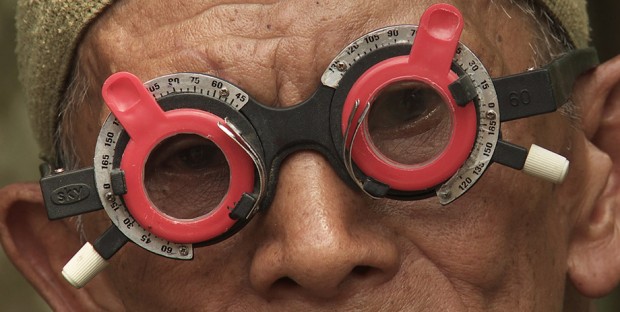
When sitting down to watch The Look of Silence – Joshua Oppenheimer‘s follow-up to 2012’s harrowing The Act of Killing – you’re struck by how quickly you can slip back into the particular brand of uncomfortable captured by its predecessor. The laughs, the jarringly playful recounting, the unblinking eye of the camera – it’s like a nightmare you find waiting for you when you go back to sleep, astonishingly unchanged. – Tommaso T. (full review)
Life of Riley and Hiroshima Mon Amour (Alain Resnais)
Fans of Alain Resnais — I don’t wish to be a total taste fascist and say “that should be all of you,” but… — should prepare for an odd, even unnerving experience. While Life of Riley premiered when the French master was still on this mortal coil, the dreaded “last film” status its since taken up is only colored further by the picture itself, in which his frequent collaborators play a close-knit community anxious over the impending death of a much-discussed, never-seen colleague. Although I’ve had some good theatrical experiences this year, nearly all pale in comparison to Sabine Azéma’s intense close-up recounting an old friend and lover who, in her own words, “May be planning his last holiday.” But that particular experience is surrounded by a very fine film of its own, both something of a You Ain’t Seen Nothin’ Yet epilogue and worthwhile standalone — one that’s endlessly amusing (thanks in no small part to Alan Ayckbourn’s source material), a strong actor’s showcase, and a final opportunity for Resnais to indulge in his penchant for the artificial. If Life of Riley doesn’t land with the same force as its predecessor, its notices on our limited time with each other is just as sublime. (Note: the festival will also be showing a 4K restoration of his first feature, Hiroshima Mon Amour. A juxtaposition between the two should prove fascinating.) – Nick N.
Listen Up Philip (Alex Ross Perry)
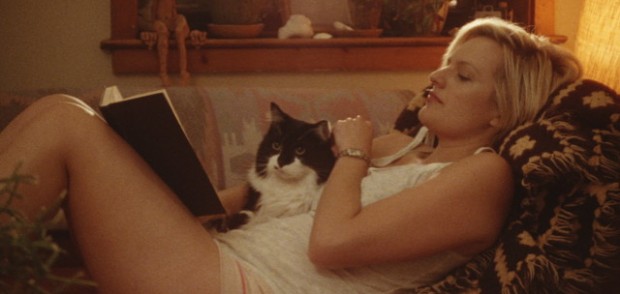
When a film follows a despicable character acting out despicable things, it takes a careful balance in both the direction and the writing to give an audience any desire to explore his or her life. Thankfully, Listen Up Philip, the latest drama from The Color Wheel writer-director Alex Ross Perry, excels in both categories. We open on our title character, played by Jason Schwartzman, gloating about his new novel to an ex-girlfriend and, then, attacking a handicapped former friend on his life choices, all while Eric Bogosian‘s inimitable narration provides another perspective to our protagonist’s narcissistic worldview. – Jordan R. (full review)
Maps to the Stars (David Cronenberg)
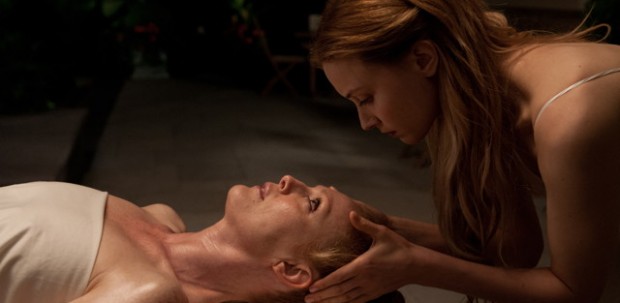
After making one of the most authentically emotional films of his career with A Dangerous Method, David Cronenberg has begun exploring the world of artificiality. Cosmopolis, which may end up standing as the director’s best film, explored the idea of capitalism in the digital age by creating a language, a series of green screen windows, and, essentially, a society in which numbers and data trumped any factors that might be described as physical. The same could be said for Maps to the Stars, except the target here is the artifice of Hollywood. – Peter L. (full review)
Mr. Turner (Mike Leigh)

In Mr. Turner, Mike Leigh, the director of Naked, Topsy-Turvy, and Another Year, works on a microcosmic scale, investigating psychology through dialogue and camera movement, finding precise moments at which the human shell can break. But both are perceptibly searching for the in-between — or, as one character in the film suggests, turning ‘particles into chaos.’ These two artists search for the essence of life through the blending of the material building blocks of the world, offering much to ponder without necessarily asserting their own importance. Even if the artist is a fool, the work will always stand. – Peter L. (full review)
National Gallery (Frederick Wiseman)
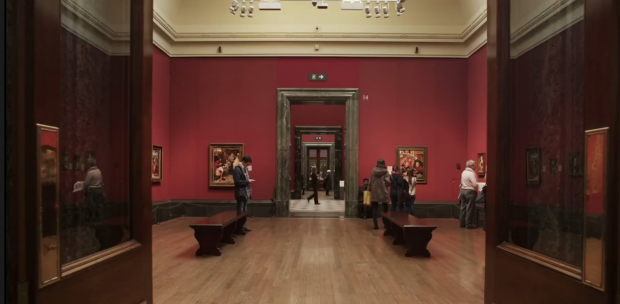
Every Frederick Wiseman film begins with a parable that defines, as a whole, the institution on which it will focus, and one practical that defines its tension. For National Gallery, the director’s meditative look into Britain’s largest collection of classical art (located adjacent to Trafalgar square in London), our opening is a tour guide explaining a Christian triptych icon to the men and women she leads. Instead of discussing the work’s artistic merit or its visual splendor, she asks each person if they can imagine themselves in the 13th century, under what context they would see it, and, most importantly, how they would communicate with it. In the second scene, two administration types discuss the major problem with their gallery as it stands: how to address the public without lowering the standards of art. How can they communicate the old masters? – Peter L. (full review)
Once Upon A Time in America (Sergio Leone)
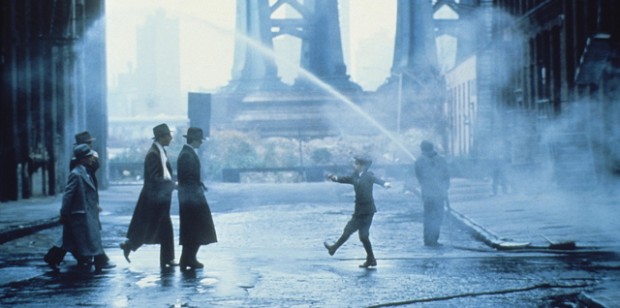
The New York-set Sergio Leone classic is not only celebrating its 30th anniversary this year, but, fittingly, will be stopping by NYFF in its finest form yet: fully restored, with the help of Martin Scorsese no less, and featuring 22 minutes of additional footage never before seen in the United States. We’re certainly excited for new films from PTA, Fincher and more at the fest, but this is perhaps the event to witness. If you can’t make it, fear not: the extended, restored cut will be hitting Blu-ray next week. – Jordan R.
Pasolini (Abel Ferrara)
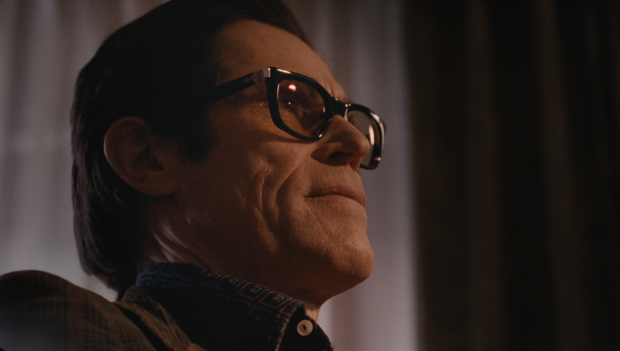
“Cinema is a never-ending long take,” Pier Paolo Pasolini once said. “And death is a form of instant editing of a whole life, picking and arranging our most significant moments.” There’s a lot of cinema and one devastating death in Abel Ferrara‘s Pasolini, but instead of a series of “most significant moments,” this unconventional biopic limits its scope to the last day in the life of a writer, poet, director, and leading intellectual voice in Italy’s post-war era. – Tommaso T. (full review)
The Princess of France (Matias Piñeiro)

Although his films are rarely filled with the obvious cinematic references that color the works of Tarantino, Matias Piñeiro’s films are a different type of cinephile’s delight, engaging essential questions of how we watch and think about movies. His approach — relaxed, inconspicuous, playful, and, at times, perhaps mystical — makes their engagement of these issues feel revelatory. Then again, Hitchcock didn’t make Rear Window as a film directly about screen-based scopophilia, and Piñeiro’s films are up the same alley. His first four followed young lovers in and around Beunos Aires, shape-shifting their way through the texts of Shakespeare, their country’s own history, and, most importantly, their own romantic relationships. The Princess of France, his fifth endeavor, is decidedly his most complex, an investigation into the idea of the off-screen — though that’s only scratching the surface. – Peter L. (full review)
Timbuktu (Abderrahmane Sissako)
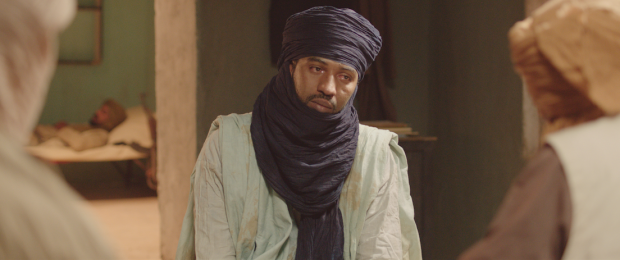
Abderrahmane Sissako can no longer be called one of the greatest African directors of our time; he has become, simply, one of the greatest directors of our time. With his fifth feature, Timbuktu, Sissako fuses the poetic visual language of Waiting for Happiness with the political urgency of Bamako to bring about a revelatory work, something along the lines of a Howard Hawks jihadi-hangout movie. I mean that as a very good thing. – Peter L. (full review)
Two Days, One Night (Jean-Pierre and Luc Dardenne)
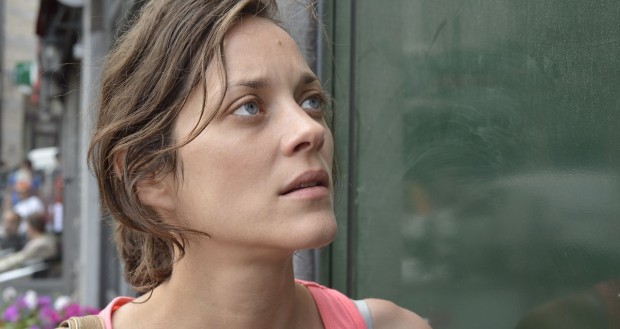
Once again, the most exciting filmmakers in world cinema have crafted a staggeringly transcendent Parable of the Poor — a view into the dichotomy of work and grace, along with the emergence of self-worth. If one must necessarily ask what is ‘new’ here, it’s that the Dardennes are becoming filmmakers who are abandoning some of their rough-and-tumble style for a cleaner, more elegant form of storytelling, aesthetics, and performance, most notably as this latest masterwork stars The Immigrant’s Marion Cotillard. – Peter L. (full review)
Voila L’Enchainement (Claire Denis)
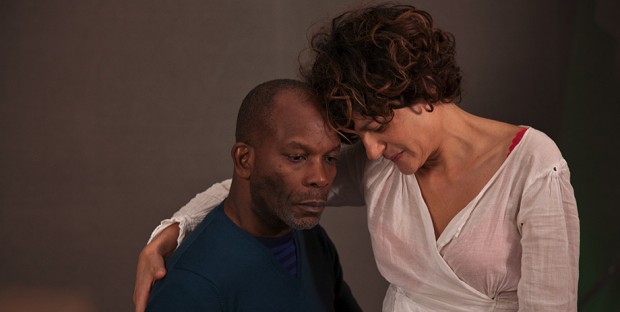
The director of my favorite film of 2013 returns (and with little notice) in Voilà l’enchaînement, an Alex Descas– and Norah Krief-led, 30-minute, set-free piece scripted by French literary figure Christine Angot. What can reasonably be expected of the tale — which “traces the arc of a strained relationship, with a focus on race and language” — is limited, except, to my mind, more of Denis’ hypnotic formalism and sensitive eye to race relations, long a staple of her oeuvre. With any luck, this can be seen past a few festival showings. – Nick N.
Follow our complete NYFF 2014 coverage here.
What titles are you most looking forward to seeing?

